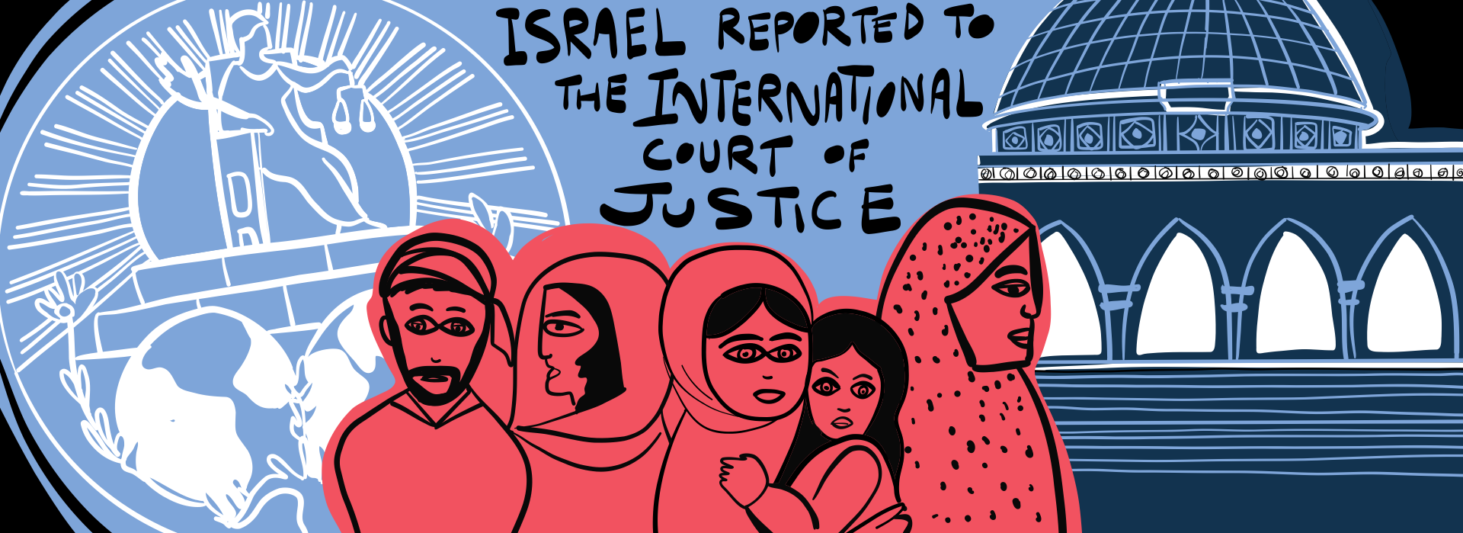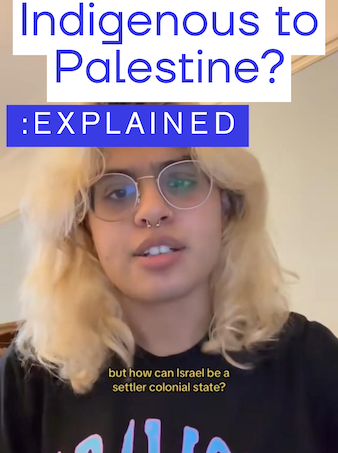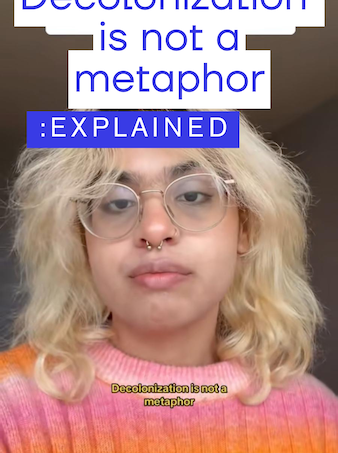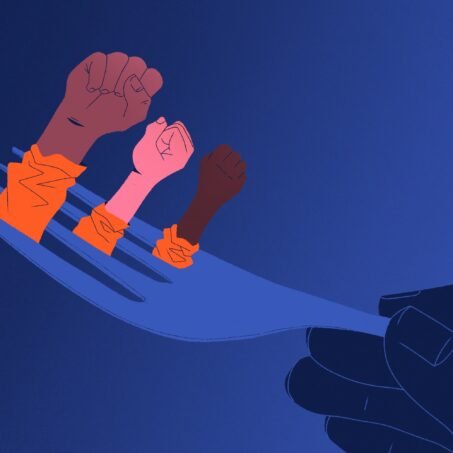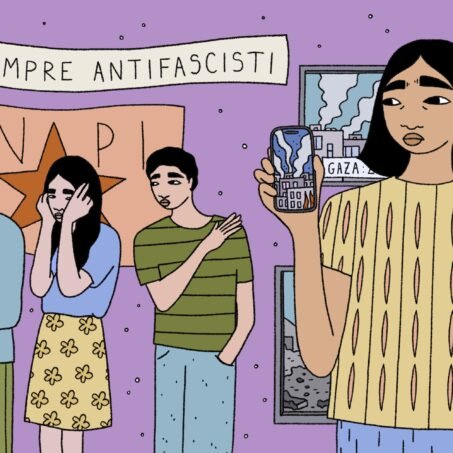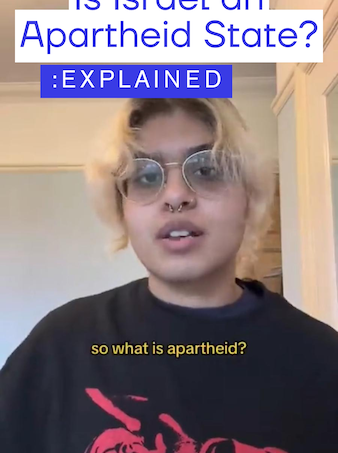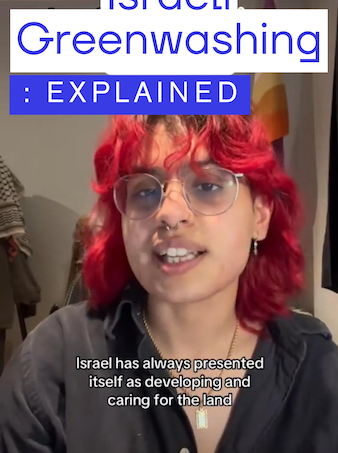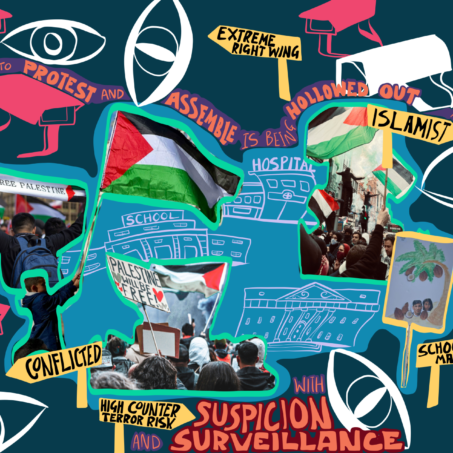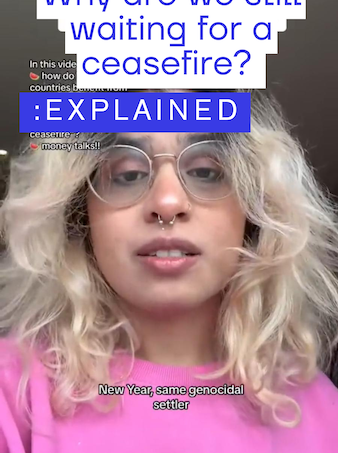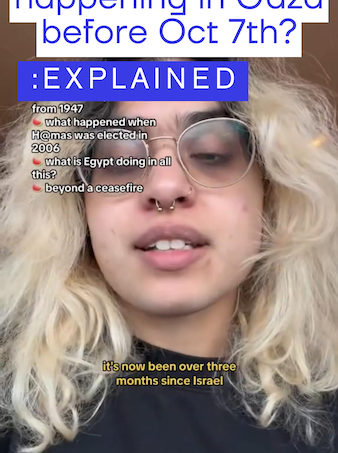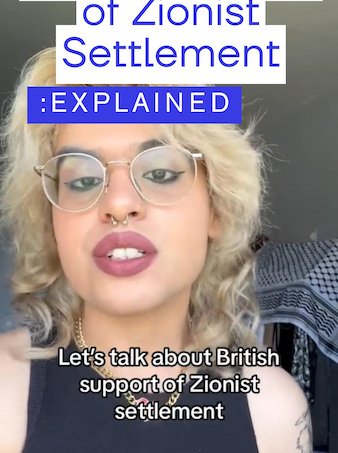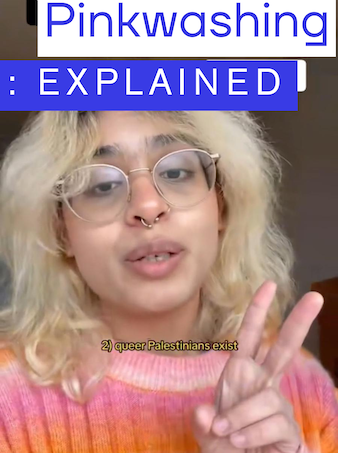On Friday 29th December, South Africa filed an application with the International Court of Justice (ICJ) requesting urgent action on the violence in Gaza, accusing Israel of violating the 1948 Genocide Convention and committing “genocidal acts.”
When the news broke, I, like so many people, felt a sense of relief. It felt like an international authority was finally taking notice, and there would be greater potential for a sustainable peace and an end to the escalating violence. But without a knowledge of what this really means when it comes to the practicalities of international law, I’m afraid that some people might have been too optimistic with what this might mean in the grand scheme of things. So let’s take it apart, piece by piece:
What did the case say, and what did Israel have to say about it?
The 84 page application states that: “Israel, since 7 October 2023 in particular, has failed to prevent genocide and has failed to prosecute the direct and public incitement to genocide” and that “Israel has engaged in, is engaging in and risks further engaging in genocidal acts against the Palestinian people in Gaza.”
In the applications, South Africa has asked the ICJ for a provisional measure ordering Israel to cease military action in Gaza to prevent further harm against Palestinian civilians.
Israel responded by rejecting the filing, with its foreign ministry saying that the accusation was “baseless” and that its military operations are “making every effort to limit harm to the non-involved,” a claim that appears dubious in the face of evidence showing indiscriminate use of force against Palestinian civilians.
Do they have a plausible case for genocide in front of the ICJ?
In this application, they use the legal definition of genocide as laid out in the 1948 Genocide Convention, which defines genocide as an “intent to destroy, in whole or in part, a national, ethnical, racial or religious group,” through actions ranging from killing members to the forcible transfer of children.
The convention punishes the acts of genocide including conspiracy to commit genocide, direct and public incitement to commit genocide, attempts to commit genocide, and complicity in genocide. However, the convention doesn’t include any enforcement mechanism or explicit consequences for people who have violated these laws.
While this definition seems to be extremely clear, there is a very high legal threshold to meet to declare an event a genocide, one which scholars and experts are currently divided on in the case of Israel’s actions in Gaza.
This high legal threshold is ostensibly to prevent the cheapening of the term genocide, which describes a very particular (and particularly horrific) violation of human rights. But, while scholars and legal bodies wait until evidence is indisputable, it is often too little and too late.
Politically, this also benefits countries who would rather remain on the fence than make good on their responsibility to take action and prevent genocide. Legally, once an event is recognized as a genocide, countries are bound by their commitments to the 1948 Convention to act, so they would rather avoid the G-word at all costs.
But, despite the difficulty in often proving genocide is taking place there is merit to South Africa’s accusations. There are instances of high-ranking Israeli officials arguably committing “direct and public incitement to genocide,” issuing statements insisting that there are “no innocent” Palestinians, calling them “human animals,” and using language which evokes past instances of ethnic cleansing and mass violence in calling for a “Nakba in 2023.”
Some scholars also point to measures that Israel has taken, such as indiscriminate bombing campaigns and the withholding of humanitarian supplies including water, food and medical, as measures aimed to destroy the Palestinian people in Gaza as a group.
Others, however, consider that there is not a clear link between the huge destruction and killing carried out by the Israeli army and any genocidal intent, which is necessary for a case to be watertight in a court of international law.
Most scholars, however, consider that there is a great “risk of genocide” in Gaza, and that Israel and Hamas would likely be found guilty of war crimes and crimes against humanity, which are not addressed in this particular ICJ application.
What is the ICJ exactly?
The International Court of Justice has a pretty self-explanatory name: it is an international court whose responsibility is to arbitrate disputes between states. Some examples include: arguments over where borders start and end; whether a state is unlawfully detaining diplomats; or other forms of exercising state sovereignty that runs up against another state’s exercise of sovereignty.
They are able to rule on cases between states, and also deliver advisory legal opinions on the interpretation of international law. The ICJ is part of the UN and all 193 member states of the UN are automatically part of the ICJ’s statute.
Why did South Africa file? Why didn’t Palestine?
Palestine is not a member state of the UN, so it is unable to file a case between states; however, it has non-member observer state status in the international body to be able to participate in the international body. But, the Palestinian foreign ministry has issued a statement in support of the filing, writing: “The court must immediately take action to protect the Palestinian people and call on Israel, the occupying power, to halt its onslaught.”
Countries are also all encouraged to take action to prevent or punish genocide when it occurs as part of various treaty obligations to uphold international human rights, so any country could have taken the initiative to file.
South Africa has been an outspoken critic of Israel for decades, seeing Israel as an apartheid regime they are all too familiar with. Their congress recently voted to close the Israeli embassy in Pretoria and suspended international relations with the country in the aftermath of 7th October so it is understandable why they would have taken such a measure.
South Africa’s action also separates from the rest of the international community, who are often reluctant to acknowledge even the potential of genocide because it would force them to act on their treaty obligations. Accusations of genocide could also risk backlash from Israel and many of its Western allies, who hold significant international power. It’s a huge act of sticking your neck out to stand up for human rights abuses when it is much easier to be silent.

Join our mailing list
Sign up for shado's picks of the week! Dropping in your inbox every Friday, we share news from inside shado + out, plus job listings, event recommendations and actions ✊
Sign up for shado's picks of the week! Dropping in your inbox every Friday, we share news from inside shado + out, plus job listings, event recommendations and actions ✊
Does the ICJ have a history of arbitrating cases dealing with genocide?
Yes, and even for cases where a state brings a case against another state for crimes against another people.
In a landmark case brought by Gambia against Myanmar in 2019 accusing the Myanmar government of genocide against the Rohingya, Myanmar accused Gambia of not being an “injured state party” who was able to bring the case.
The ICJ rejected its dispute, noting that in the case of genocide, a violation of a central, unimpeachable norm, the case is one of “[achieving] common purposes” as an international community dedicated to upholding human rights. The case is still unfolding, with Gambia presenting evidence and arguments to uphold its case before the court.
Most recently, Ukraine filed against Russia in the ICJ, where Ukraine accused Russia of invading Ukraine on false allegations of genocide, and thus has no legal basis as a “humanitarian action.” The ICJ is also still currently hearing this case, but in its provisional measures, the court ordered Russia to cease military action in Ukraine.
It is tempting to draw parallels, as many have done since (and preceding) 7th October, between the lack of action in Palestine as compared to Ukraine. From a legal standpoint however, the case of Ukraine and Russia is different because Russia clearly committed a crime of aggression, invading Ukraine with no legitimate pretext. However, Israel attacked Gaza in response to the October 7th attacks by Hamas, which could legally constitute self-defence (in spite of the years of occupation and violence at the hands of Israel). It’s a complicated part of international law, and one that deals with issues of proportionality.
Moreover, because the ICJ has not yet heard the case of South Africa and Israel, we aren’t able to compare the international legal reactions just yet. Any sort of hypocrisy in how these two situations are being actively handled on the international level falls more on the shoulders of powerful Western states, many of whom have thrown their backing behind Ukraine and many of whom are now broadly supportive of Israel.
If they rule in favour of South Africa, does this mean that Israel will stop military action? Will they be held accountable by the ICJ?
Israel might be held accountable in a name-and-shame way, but most likely not in a way that is concretely meaningful for victims of the violence in Gaza.
The ICJ’s provisional measure on Russia and Ukraine was announced in March 2022, and the war is still ongoing. Russia’s choice to ignore the ruling is compounded by the fact that the ICJ cannot enforce its rulings itselves – there is no world “police” to carry out this kind of coercive justice.
The only option for enforcement would be relying on the UN Security Council, which is the single legitimate international body able to carry out enforcement measures, including sanctioning military force. In the case of Russia and Ukraine, this option is a no-go given that Russia is a permanent member of the Security Council, and is thus able to veto any action.
In the case of South Africa and Israel, even if the ICJ issues a provisional measure asking Israel to cease military action, Israel could easily choose not to comply. Any sort of enforcement action would have to pass the gauntlet of the Security Council, where Israel is staunchly supported by the United States, another permanent member with the ability to veto.
In addition, ICJ proceedings are slow going. Gambia instituted proceedings against Myanmar in 2019, and the case is still being arbitrated. In the Russia and Ukraine case, the war is still ongoing. ICJ decisions, provisional measures, and rulings do very little to help populations that are actively suffering – while the ICJ can ultimately decide that someone committed a crime, it cannot really work in a timely enough manner to prevent harm while it is happening.
The ICJ has its merits: it is an excellent way to solve state disputes; the weight of its words can exert important pressure; and its rulings are accepted as legitimate by most of the world. However, it’s not a really effective body to turn to if you want forceful and timely solutions to world problems.
Will Netanyahu or other Israeli leaders at least go to trial? What about Hamas’ human rights violations?
The ICJ is often confused with the ICC, or the International Criminal Court, which tries people for violations of international law. The ICC and its various offshoot tribunals established in Cambodia and the former Yugoslavia are the courts that we associate with holding generals, presidents and other individuals responsible for the four core international crimes: war crimes, crimes against humanity, the crime of aggression, and genocide.
The ICC was created by the Rome Statute of 1998 to address these specific crimes, but since it is rooted in a treaty, they only have jurisdiction over actions involving the treaty’s members. Israel is not a member of the ICC, so they are not beholden to the ICC, but Palestine as a non-member observer state of the UN has been a member of the ICC since 2015. As such, the ICC has been investigating evidence of war crimes and crimes against humanity perpetrated by Israel against Palestinians, and Hamas against Israelis. The investigation is still ongoing, and evidence that the ICC investigation collects could form the foundation for a case of violations committed by Israeli and Hamas leadership.
Even if the ICC finds there is enough evidence for a case and issues arrest warrants, nothing can really compel these people to show up to court unless their home countries turn them in. There is an outstanding arrest warrant for Vladimir Putin from the ICC, for example, but he can dodge it by declining to visit member states of the Rome Statute that are obligated to arrest him. So unless Israel and Palestine consent to participate fully in ICC proceedings, the chances of anybody standing trial in an international court are very slim.
So what now?
The court has not set a date yet to hear South Africa’s application, but when it does, we can look out to see if they issue provisional measures that could order the cessation of hostilities. Other states could also sign on to the case, filing legal interventions to be allowed to participate in the case, just as countries have done in the case of Ukraine and Russia. In the grand scheme of things, this might not result in anything substantial for the protection of civilians or a just, permanent solution to what is happening in Gaza, but by having the highest court of international law hearing and ruling on this case, it brings extra scrutiny and pressure for actors to comply with international human rights law. It could also lead to consequences down the road, building a robust legal case that sets precedent for other courts like the ICC to take action.
The answers aren’t easy in international human rights law, and the pace of change is often slow and frustrating. It’s something I struggle to reconcile, especially in the face of such extreme violence and bloodshed. At the end of the day, however, human rights law has a moral core that holds true, and these organisations help to establish a carefully evidenced truth to add to the historical record, even if states try to weasel their way out of accountability. There is a right and a wrong side of the international human rights regime, just as there is a right and a wrong side of history. More often than not, they are the same.
Continuing to expose and discuss human rights violations is the most effective way to strengthen the international human rights law regime, empowering it to have more influence on the world. Keeping the focus on Gaza, spurring these international bodies into taking action, and following up their conclusions with an indictment of the court of public opinion is the best chance we have to force their hands into seriously pursuing a political solution to this cycle of violence.
But the only option to be able to discuss politics is to have peace first. This means that people need to keep protesting, calling for something that cannot be argued with: the protection of universal human rights starting with a permanent ceasefire. That is a tall order, but one we need to deliver on if we want to save lives, guarantee rights, and build a sustainable peace in Gaza.
What can you do?
- Promote open-minded and informed dialogue within your community, especially around how human rights are at stake. You can look toward a number of amazing organisations that work to bridge this divide, consult the resources they offer, and support their efforts, such as:
- Beyond supporting these organisations, take cues from the affected communities to see how you can help, from buying e-sims for Gazans to calling your government representatives for a permanent ceasefire—a solution conducive to both the liberation of Israeli hostages and building a peaceful future for Palestinians. Liberation and peace is not a zero-sum game, and we should continuously strive for a world where that is the reality.
- Hear from Palestinian writers, organisers and activists in articles HERE


